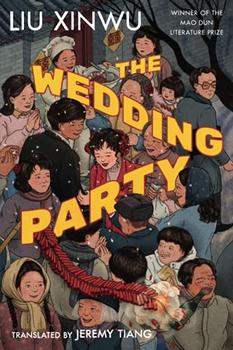Summary | Excerpt | Reviews | Beyond the Book | Readalikes | Genres & Themes | Author Bio

Chapter 23
A young hoodlum approaches the Bell and Drum Towers—it's not looking good.
To many adults, the Great Proletarian Cultural Revolution feels like it happened just yesterday. Ten years of turmoil put a sudden stop to many developments that had been well underway. When the chaos was over and people tried to pick up the threads of the past as they righted themselves, they had no choice but to treat the last decade as a blank, as if time had frozen in the summer of 1966 and thawed in the fall of '76. For the last few years, newspapers have been referring to writers in their late thirties, or even those pushing fifty, as "young authors." Most people, including the writers themselves, feel they deserve to have ten years deducted from their actual age.
But what about those born just as the Cultural Revolution was kicking off? Aged sixteen in 1982, they've lived through infancy, childhood, and their teenage years, and are now about to enter young adulthood. They've been quietly growing up.
One of them is now walking north along Drum Tower Street.
His name is Yao Xiangdong—"Xiangdong" as in "facing Dong," meaning Mao Zedong. Many people his age have "Dong" in their names: "defending Dong," "establishing Dong," "praising Dong," and so on. (Names referencing more controversial individuals, such as Weibiao—"protecting Lin Biao"—or Xueqing—"learning from Jiang Qing"—were swiftly changed after their namesakes' fall from grace.) In kindergarten, their minders sang lullabies about "defeating turncoats, traitors, and thieves of work." Toward the end of elementary school, their teachers told the story of Grandpa Liu Shaoqi's great achievements. During the time of "open-door schools," they took part in activities to "further the journey of Socialism and block the road of capitalism," and the teachers raised their awareness by screening the Maoist film Pine Ridge and calling a session afterward for them to denounce the character Qian Guang's selfish, corrupt behavior. When they were about to graduate from middle school, the national obsession with grades was at its height, and in order to help get them into a good high school, the teachers worked on their writing abilities by screening Dawn of New Hopes and getting them to write critiques of the extreme leftists violently trampling the reasonable hopes of country folk. Society told them love and money were shameful, but now love is everywhere, and households with more than ten thousand yuan are lauded, sending a signal that having more money is glorious. At this young age, having barely experienced anything, central nervous systems still not fully developed, they had to deal with these enormous, constant dramatic reversals. What psychiatric problems and mindsets did they develop as a result?
Anyway, Yao Xiangdong is idly walking north along the street, hands in the pockets of his pale-yellow padded windbreaker.
He's just been kicked out of his home. The reason? That pale-yellow windbreaker.
Yao Xiangdong's father is a former army man; in the late 1960s, he switched to being a security guard at a district-level government department. He's always been very strict with Xiangdong. Ever since Xiangdong was four or five, his father's been filling his brain with the notion that he should join the army as soon as he's old enough. Xiangdong's mother is a typist and naturally also hopes her son will grow up quick and become a soldier. When he was a kid, she sewed him a little uniform in army green, complete with red trim on the collar, and of course a tiny soldier's cap adorned with an authentic five-pointed red star—his dad asked an old army buddy to take it off his own cap. Until he was ten or so, Xiangdong's heart brimmed with a sense of superiority, pride, and confidence. "My dad was in the People's Liberation Army, and I'm going to join up when I'm grown! My dad has so many old army buddies. If I live to be grown, he just needs to say a word to them, and I can enlist!"
Excerpted from The Wedding Party by Liu Xinwu. Copyright © 2021 by Liu Xinwu. Excerpted by permission of AmazonCrossing. All rights reserved. No part of this excerpt may be reproduced or reprinted without permission in writing from the publisher.
Your guide toexceptional books
BookBrowse seeks out and recommends the best in contemporary fiction and nonfiction—books that not only engage and entertain but also deepen our understanding of ourselves and the world around us.